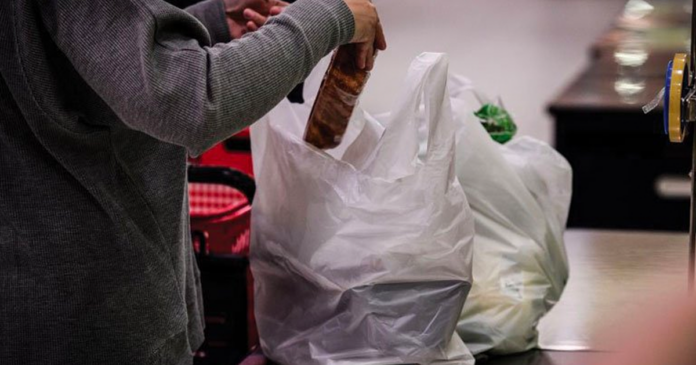An Alberta grocery chain is speaking out after learning its specially designed bags will be targeted under the federal government’s single-use plastics ban – despite being compostable.
Calgary Co-op, which operates in central and southern Alberta, says it stopped using plastic bags four years ago, but, despite designing its compostable bags with Calgary’s municipal government, the company has found itself in bureaucratic crosshairs.
“We were using 33 million plastic bags a year,” Ken Keeler, Calgary Co-op’s CEO, told the National Post. “And so we made this decision without any push from governments and rules and regulators, because we felt it was the right thing to do for the environment.”
Last year, the federal government introduced legislation banning single-use plastics, including disposable grocery bags, by the end of this year.
Calgary Co-op’s compostable bags are being targeted because of a technicality in how long they take to compost.
The federal government claims Calgary Co-op’s compostable bags don’t adhere to regulations requiring disintegration within 28 days because the bags are also designed to double as bin liners.
The company estimates it has kept 120 million plastic bags out of landfills since adopting these compostable bags, which cost 15 cents, in 2019.
Even Calgary Mayor Jyoti Gondek even petitioned Guilbeault on Calgary Co-op’s behalf in May, stating the company’s compostable bags adhere to municipal requirements after having collaborated on their design.
“The bags break down at the Calgary Composting Facility and can be used as kitchen pail liners which supports participation in The City’s Green Cart program,” Gondek wrote in a letter to Guilbeaut.
Her letter added that an exemption from the legislation’s rules could function as a transitional to full consumer adoption of reusable bags.
But, as the Post reported, Climate Change Canada remains insistent Calgary Co-op’s compostable bags must be treated like all other single-use plastics. Referring to the compostable bags’ dual usage as bin liners, the government agency cited a three-year-old government-commissioned study which found there’s insignificant evidence biodegradable plastics fully degrade in natural environments.
First announced last June by Steven Guilbeault, Minister of Environment and Climate Change, and Minister of Health Jean-Yves Duclos, the manufacture and importation of single-use plastic—“barring a few targeted exceptions to recognize specific cases—took effect in December.
The full prohibition—which targets plastics used to produce checkout bags, cutlery, foodservice ware, straws, stir sticks, and ring carriers—takes effect Dec. 20 of this year so that Canadian businesses have enough time to transition and exhaust existing stocks, the government statement said.
The statement also noted exports of the six aforementioned products will be banned beginning in 2026.
Calgary Co-op will, however, be able to sell its compostable bags in bundles, which Keeler told the Post concerns him because it could dissuade customers from using their own reusable bags.
The company has expressed hope the legislation can be amended to grant an exception so that customers buying groceries that become organic waste won’t be forced to buy compostable bags.





















